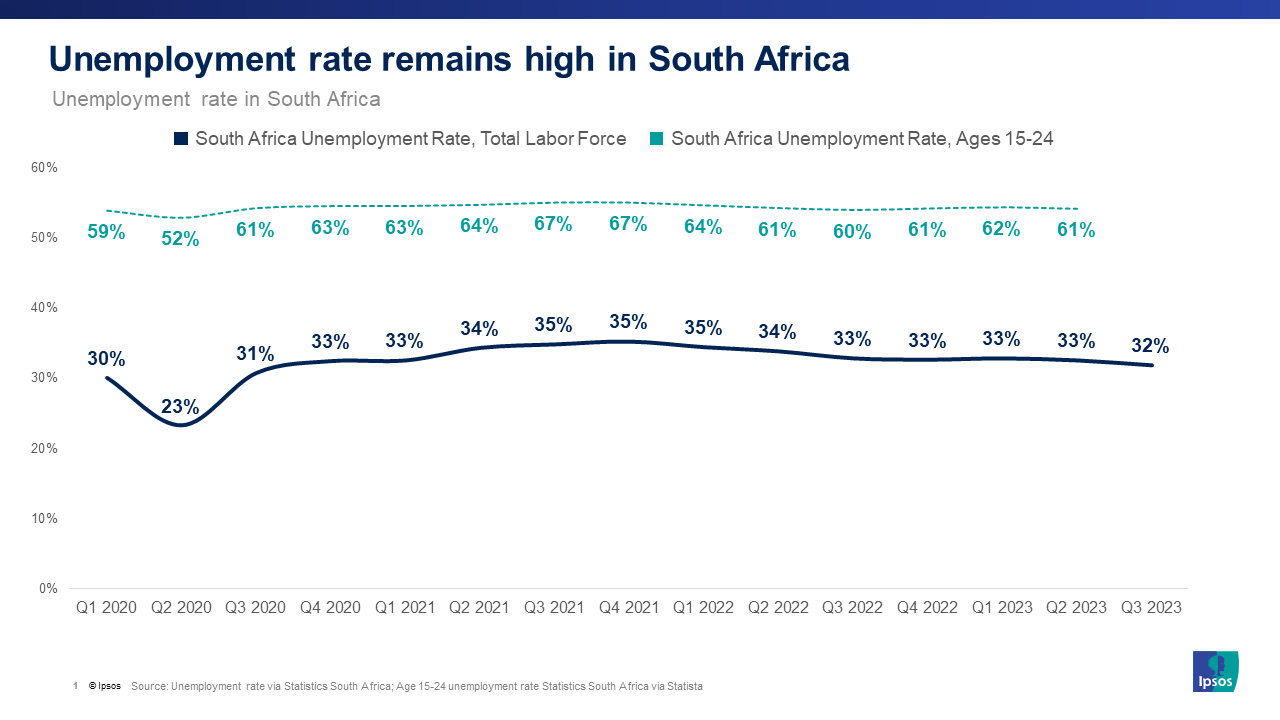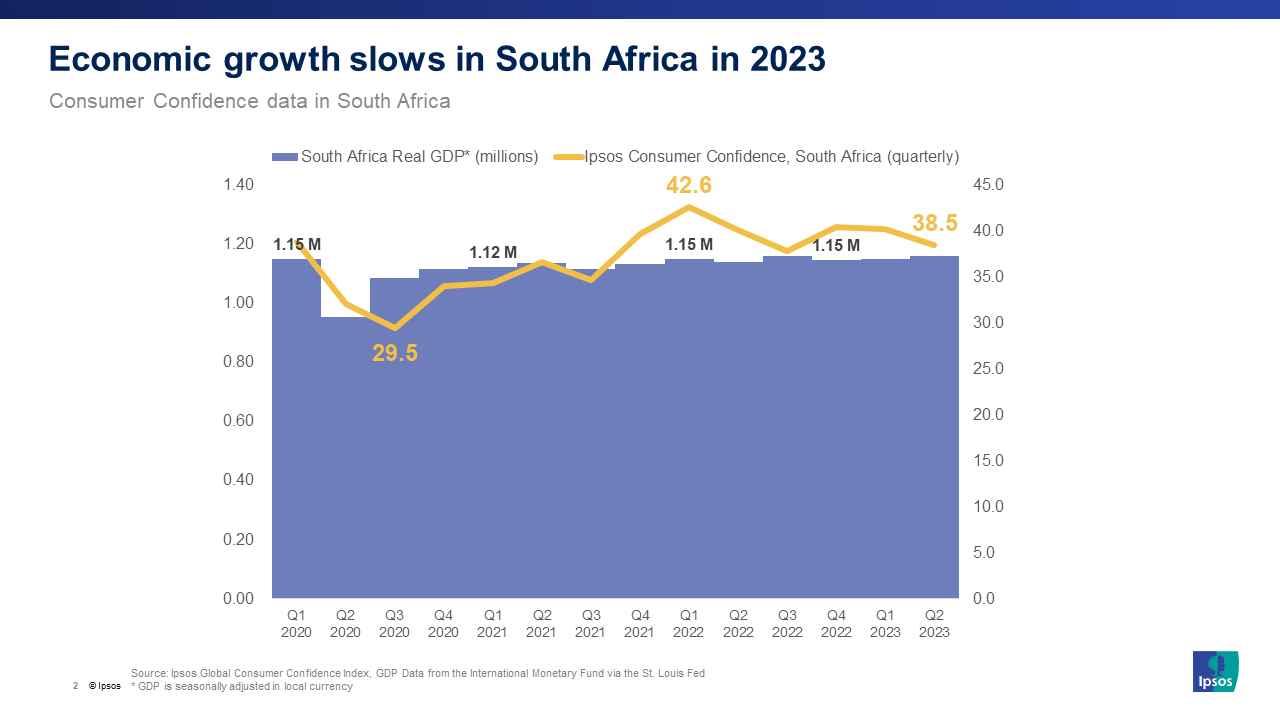How and why sentiment declined among South African consumers
Economic sentiment in South Africa seemed to be on the rise to begin 2023. South Africa’s consumer confidence rebounded from downturns following both the COVID-19 pandemic and the start of the conflict in Ukraine. Confidence in job security was at its highest point since 2014, and things seemed to be heading in the right direction.
However, 2023 has been volatile to say the least. South Africa’s National Index, a measure of consumers’ overall economic attitudes, declined nearly six points in the first half of the year. And after a 3-month turnaround that saw the index gain nearly nine points, it declined by seven points from September to November. The end result is that consumer sentiment has dropped back in line with pre-pandemic readings.
So, what caused this turbulent year? Analysis suggests that both a sky-high unemployment rate and constant power outages have contributed to the up-and-down South African consumer sentiment in 2023.
South Africa has one of the highest unemployment rates in the world
A major contributor to the muted economic sentiment in South Africa is the country’s unemployment rate. In Q2 2020, just after the country enacted its first COVID-19 lockdown, it was at 23%. The country’s unemployment then reached a staggering high of 35% in the latter part of 2021, and while it has eased somewhat, the current unemployment rate sits at 32%, among the highest in the world.
High unemployment is especially problematic among the youth – the unemployment rate among those ages 15-24 is north of 60%. Even among those with a tertiary education, one in three are unemployed.
This prolonged bout with high unemployment has predictably affected South Africans’ confidence in both their job security and their purchasing confidence. All these measures are down at least 5 points since the start of the year.

Power outages have persisted
While unemployment has no doubt dampened the economic mood in South Africa, it is also likely that the current energy crisis has as well.
This current crisis started in 2007 and has persisted ever since. The country has undergone various periods of “load shedding,” which happens when electricity is intentionally stopped for a period of time over different parts of a region with the goal of avoiding a total unplanned blackout.
Over the last two years, load shedding has been especially hard on both citizens and businesses. These power cuts sometimes result in electricity outages of more than 10 hours per day, which can stall business operations and disrupt South Africans’ daily lives. And with outages reaching record levels in 2023, consistent power is not a given for South Africans.
It is no surprise with these issues that consumer sentiment has weakened, as South Africa’s economy contracted by 1.3% in Q4 2022 and has only grown by 0.3% so far in 2023.

Economic sentiment in South Africa has declined back to its pre-pandemic levels. With next year’s national election fast approaching, the country’s high unemployment rate and current energy crisis will likely be top of mind for South Africans. How its government manages both of these issues in 2024 will impact not only the election, but also whether South Africa rebounds from its pandemic perils or spends another year spinning its tires.



